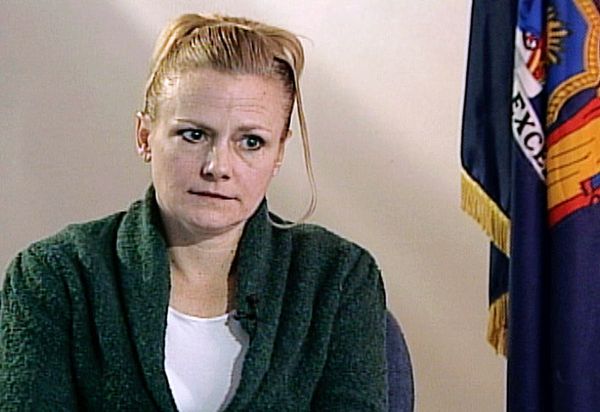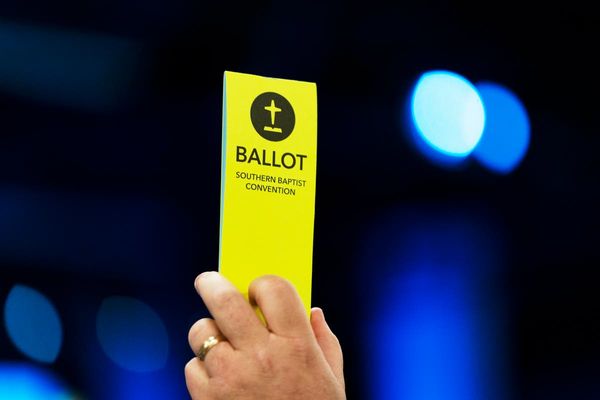
This piece is part of a series. Read the introduction and find the full series here.
Damien Cave has worked around the world for The New York Times — from Mexico to Iraq — but when he arrived in Australia as the publication’s Sydney bureau chief, he was stunned by the government’s lack of transparency.
“Out of democracies with functioning governments, I think this is one of the hardest places to extract information from government, or from anyone paid with public tax dollars,” Cave told Crikey.
“The Australian government doesn’t feel that it has an obligation to the public to explain its behaviour, whereas in the US and other democracies, that’s considered part of the job. And I don’t think in Australia that’s the standard — it’s basically, ‘Trust us, we’ve got this’ and that’s that.”
Cave spoke to Crikey ahead of a Senate inquiry into Australia’s freedom of information (FOI) system — the legislation that allows the public access to documents from government agencies. In the lead-up to the inquiry, Crikey brings you REDACTED, a series showing readers how FOI requests are used, by whom, and why they matter.
The inquiry was prompted by the resignation of former FOI commissioner Leo Hardiman, who said he had no choice but to quit because the system wouldn’t allow him to do his job properly. Though the inquiry will be limited to the circumstances of Hardiman’s resignation and the operation of the FOI Act, academics and journalists say Australia’s transparency problems run deep.
The country’s cloak-and-dagger approach to information freedom is more than just a vibe felt by foreign journalists: Australia is currently ranked at number 27 on the Press Freedom Index, an improvement from last year’s ranking at number 39, but still behind neighbours like New Zealand and Timor-Leste and much of Europe.
As Monash University associate journalism professor Johan Lidberg noted, Australia is the only Five Eyes member country that has no explicit constitutional framework for protecting free expression or a free press.
It is also the only Five Eyes country, other than the UK, that makes intelligence agencies immune from freedom of information requests.
“I don’t know of any other liberal democracy that places such limitations on the press,” Lidberg said.
“In most such countries, there is a constitutionally based set of rules that determine the balance between the interests of the state and the citizens, but not in Australia.
“The norm is to have a constitutional protection for freedom of speech and the press, but Australia is an outlier here.”
In his 2018 book In the Name of Security: Secrecy, Surveillance and Journalism, Lidberg traces the history of freedom of information laws.
The earliest one was passed in Lidberg’s native Sweden in 1766 and predates the US constitution’s famous First Amendment by several decades.
“One of the most potent arguments in favour of well-functioning and far-reaching FOI systems is that a win-win situation is created,” Lidberg writes in the book.
“It could be seen as a trust-building mechanism between those who govern and those who are governed.”
The longstanding and constitutionally enshrined information freedom protections in both countries appear to have enabled a far more transparent approach to governance, policing and justice compared with Australia.
Bloomberg investigative journalist Jason Leopold, whose relentless freedom of information applications with the US government earned him the nickname “the FOI terrorist”, said the ability to request documents was an essential tool for holding officials accountable.
“FOI is how you keep the public informed about what their government is up to and how their taxpayer dollars are being spent,” Leopold told Crikey.
Leopold’s FOI work has led to the release of ex-secretary of state Hillary Clinton’s emails, an unredacted version of the Robert Mueller report into the Trump-Russia allegations, and scoops on Guantanamo Bay detainees.
But still, he said, the way the law functions in the US is far from perfect.
“On the [US government’s FOI website] it says the function of the Freedom of Information Act is ‘vital to the functioning of a democratic society’.
“I couldn’t agree more — that’s why it’s so frustrating when government agencies thwart my efforts to inform the public by delaying the release of records and in many instances withholding documents altogether.”
In countries like Sweden and the US, journalists have far greater expectations of what information they’ll get from officials than reporters do in Australia.
In Sweden, for example, courts routinely make entire police investigation files public as soon as a criminal suspect is charged, and in the US officials are often quick to share with the press both police reports, emergency call audio and detailed statements from investigators.
In Australia, by contrast, it’s often impossible to obtain more information about a criminal matter than a few anonymous quotes issued by anonymous police spokespeople — and when cases come before the courts, journalists are often severely limited by suppression orders in what they can report.
“It’s just significantly more secretive in Australia,” Cave said.
“It seems police and judges have very little respect for journalists, and the assumption [appears to be] that what journalists do is just stir up trouble.
“They’re not treated as proxies for the public — they’re just irritants who need to be kept in their corner.”
Another uniquely Australian concern for journalists is a constant fear of being sued.
“I think I’ve spent more time in Australia talking to lawyers — to deal with potential defamation risks or other legal hurdles of reporting — than I have in any other job in my whole career,” Cave said.
In the 1970s, when Australia first began debating enacting a freedom of information law, it was ahead of its time compared with other Westminster-style parliaments.
The Freedom of Information Act was passed in 1982. Its original spirit — including acknowledging the public’s right to access official information — has been described as “quite admirable, even inspiring”, by prominent integrity advocate and barrister Geoffrey Watson SC, who said the problem was not with the legislation but the politicians and bureaucrats who refuse applications as a “default”.
Seven News freedom of information editor Alison Sandy said using the act to get information from the government at times felt like “squeezing blood from a stone”.
“Public servants see themselves as guardians of information … They won’t open the door on anything and they’re so risk-averse,” she said.
“But the whole point is that the information belongs to the public.”
She said lengthy delays in reviewing FOI decisions often rendered the information useless.
“I’ve got several applications before the Office of the Australian Information Commissioner (OAIC) that are more than four years old, and by that time it’s redundant.”
The OAIC has been described as chronically underfunded, with an allocation of just $11 million per year in the latest budget — money that will be shared among the FOI commissioner, an information commissioner, and a privacy commissioner.
Cave said he wished Australia would rethink its entire approach to transparency.
“The big problem in Australia is that secrecy is the default setting for governments, and what needs to change is for governments to start moving towards seeing transparency as the default,” he said.
“Making information accessible, easy to find, and frequently distributed is beneficial for democracy.”







